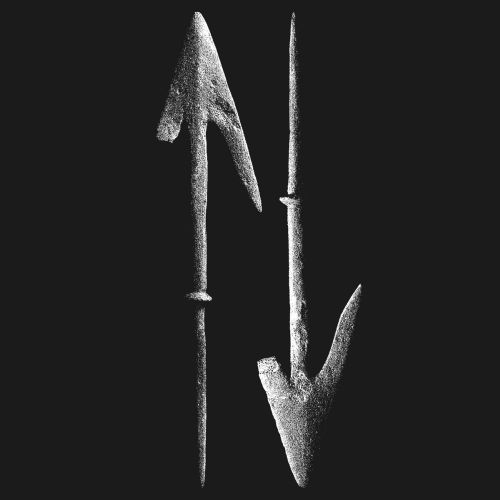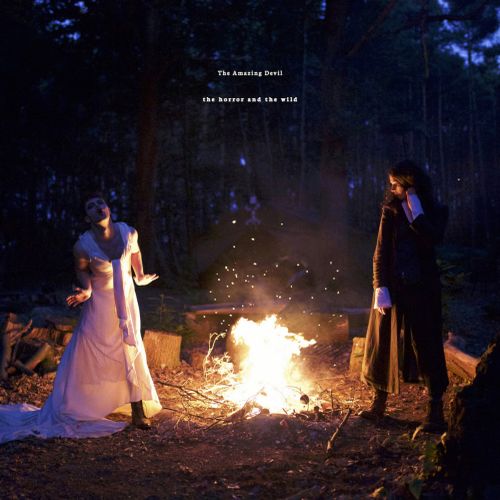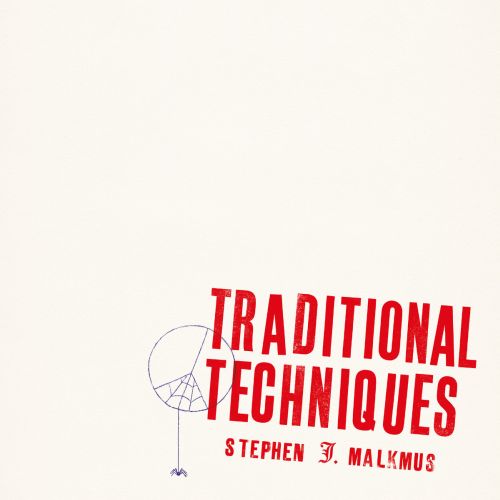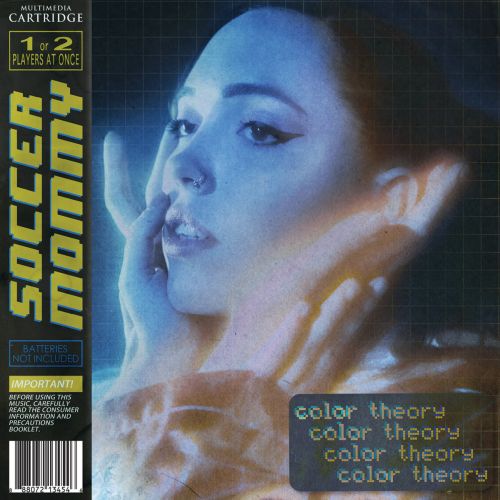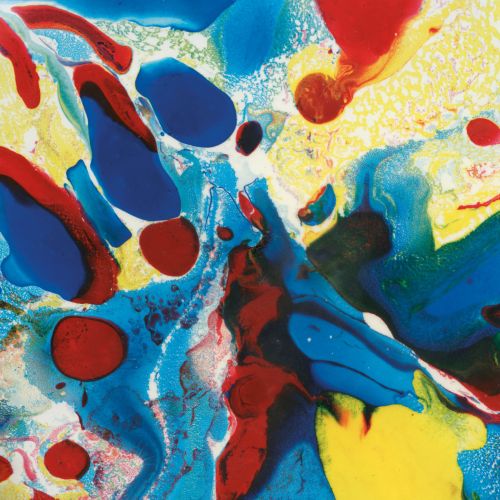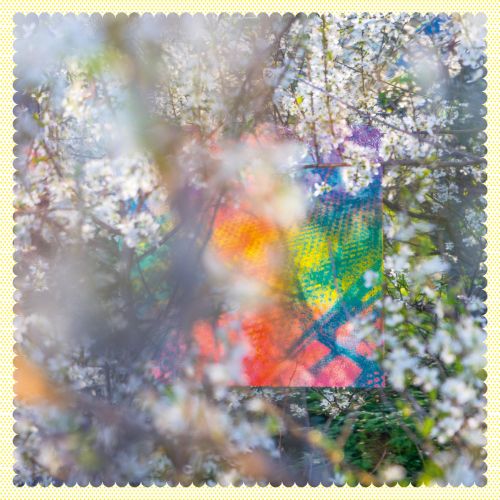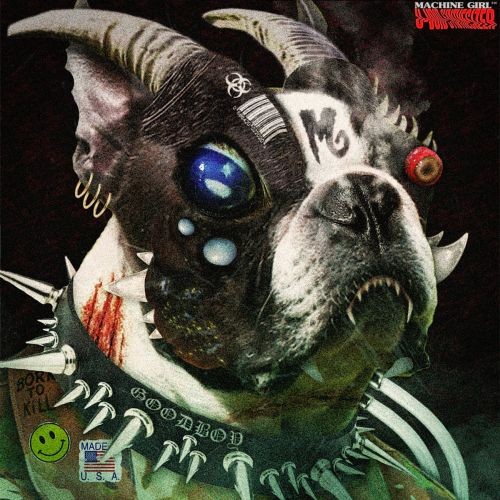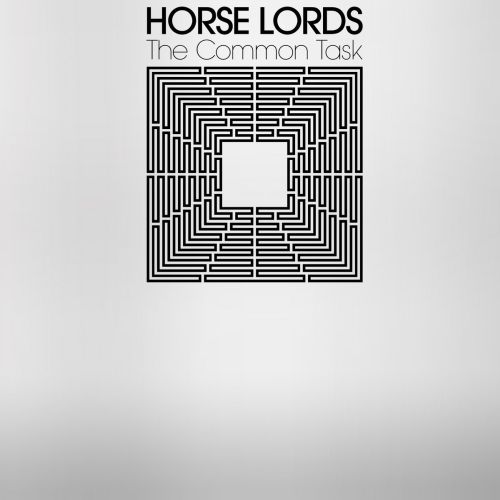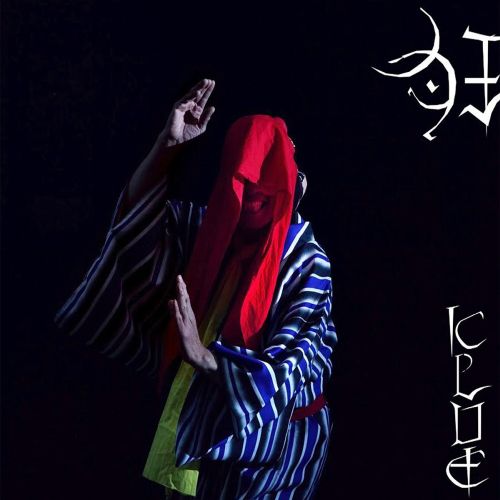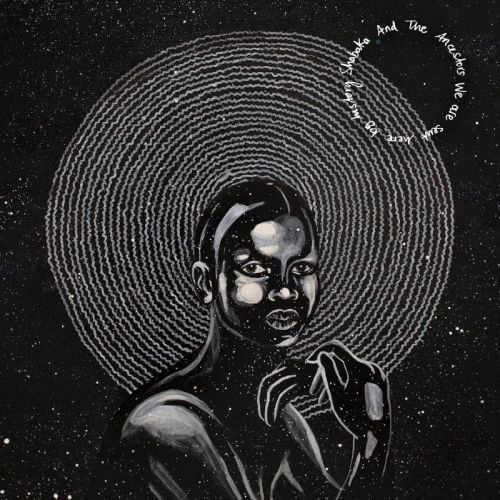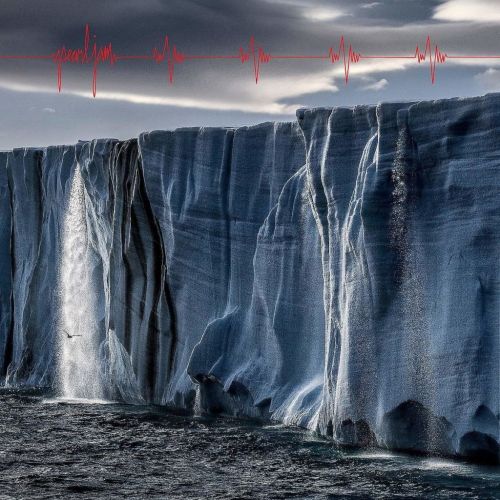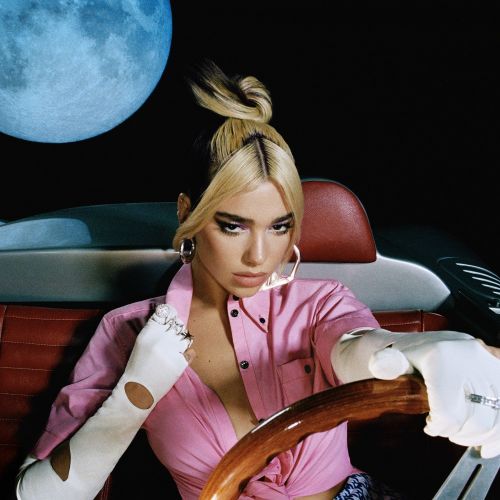Wait A Minute! This Isn't Metal! - March 2020

| Written by: | RaduP, musclassia, nikarg, Darkside Momo, Abattoir |
| Published: | April 18, 2020 |
Wait A Minute! This Isn't Metal! - March 2020
Metal Storm's outlet for nonmetal album reviews
You'll notice that we tried a new layout with this one, so we're hoping we might get some feedback from you. Hope you've had/are having a happy Easter, and that you're staying safe. We'll make it through.
The place where we'll talk about music without growls or blast beats
unless they still have those but still aren't metal
unless they still have those but still aren't metal
We here at Metal Storm pride ourselves on our thousands of metal reviews and interviews and article; metal is our collective soul and passion, which is why we bother with this junk. That being said, we'd be lying if we stuck to our trve-kvlt guns and claimed that metal is the only thing we ever listen to. Whether we want to admit it or not, we do check out some other stuff from time to time; some of us are more poptimistic than others, but there's a whole world out there aside from Satan-worshiping black metal and dragon-slaying power metal. We do already feature some nonmetal artists on our website and have a few reviews to back them up, but we prefer to limit that aspect of the site to those artists who have been a strong influence on the metal scene or who are in some way connected to it. This article series is the place for those artists who don't matter to metal in the slightest but still warrant some conversation - after all, good music, is good music, and we all know metal isn't the only thing on this planet for any of us.
Down below, you might find some obscure Bandcamp bedroom projects or some Billboard-topping superstar; as long as it ain't metal and the album itself isn't a best-of compilation, it fits. Obviously, we're certain that not everything will be for everybody (you guys can be viciously territorial even when metal is the only thing on the menu, and we're all supposed to like the same things), but we do hope you find at least one thing that you can enjoy, instead of just pointing and screaming in horror "Not metal!" as if that would be an insult.
Here are our previous features:
February 2020
January 2020
December 2019
And now to the music...
Converge isn't really the band known for making ambient music. One doesn't become a metalcore and mathcore pioneer without putting vitriolic loud aggression first. But at the same time, they were always a bit more than that, and their music for the past twenty years has flirted with a lot of different sounds and approaches, so this doesn't come as a complete shock. But this isn't really an "original" composition, instead being a reworked version of "Aimless Arrow" from Converge's 2012 opus All The Love We Leave Behind. Quite a huge leap from the chaotic violent two minutes of that track to the ominous and serene thirty minutes of "Endless Arrow".
It is indeed quite a leap to make, beating Type O Negative's cover of "Paranoid", but not quite reaching Marax' eight minutes cover of "You Suffer"; in elongating a short song, but there is a bit of semblance between this version and the original. At times you can almost feel like a spectral ghost caught in Jacob Bannon's screams. It does at times feel a bit too much like just a more polished take on having that track simply stretched out, but it still feels like it stands on its own feet. It comes as no surprise that Kurt Ballou, the sole contributor to this remix, and the person behind the production of every other metal album out there, can manipulate sound and make this actually worthwhile. Released to supposedly "keep people entertained in these challenging times", I'm not entirely sure how entertaining I can consider this to be, but I wouldn't mind a Kurt Ballou ambient side project, where he doesn't have to be constrained to using a Converge song as the root.
⠀⠀⠀⠀⠀⠀⠀⠀⠀⠀⠀⠀⠀⠀⠀⠀⠀⠀⠀⠀⠀⠀⠀⠀⠀⠀⠀⠀⠀⠀⠀⠀⠀⠀⠀⠀⠀⠀⠀⠀⠀⠀⠀⠀⠀⠀⠀
Bandcamp
by RaduP
⠀
⠀
I have reviewed a Nicholas Jaar album this year, one released under his Against All Logic alias. Despite that being the side-project and this being the main course, I can see a lot more people appreciating the former to the latter, mostly because as gritty of a house/techno album the Against All Logic album was, at least it was cohesive and had some sort of form. Nicolas Jaar is no stranger to ambient music, but it seems he took an even bigger left turn with Cenizas. The electroacoustic approach that this album has, along with it feeling more like a collection of vignettes would make it feel a lot more disjointed and boring if in the hands of the wrong man. Nicolas Jaar is not the wrong man.
Cenizas is haunting and evocative. It is the type of album that is somewhat hard to digest on its own, better paired with it setting the mood to an activity like reading a book, or drinking tea on a rainy night, because of how effective it is in taking you out of reality in the right circumstances. It's like a combination of Burial and Grouper and Boards Of Canada, but stripped even further down to be quiet. Really quiet. The instrumental palette here is pretty large, and the vocals fit really nicely too, but it's the type of album I feel should be listened to at a volume as low as one can still tell apart each sound, with no other sonic distraction.
⠀⠀⠀⠀⠀⠀⠀⠀⠀⠀⠀⠀⠀⠀⠀⠀⠀⠀⠀⠀⠀⠀⠀⠀⠀⠀⠀⠀⠀⠀⠀⠀⠀⠀⠀⠀⠀⠀⠀⠀⠀⠀⠀⠀⠀⠀⠀
Bandcamp | Apple Music | Google Play Music | Spotify
by RaduP
⠀
⠀
The Amazing Devil is a project featuring British actors Joey Batey (The Riot Club) and Madeleine Hyland (Vanity Fair); although their credits thus far have been fairly minor, the appearance of Batey as the bard Jaskier in the TV series adaptation of The Witcher has increased both his and this project's exposure, just in time for the release of their second album, The Horror And The Wild. I haven't seen that series, but presumably there's some musical overlap between being a bard in a fictional medieval fantasy land and the kind of indie folk rock that features on The Horror And The Wild.
The tone early on in the record is quite dramatic, between the ominous ambience of "The Rockrose And The Thistle" and the passionate storytelling of the title track, which features acoustic guitars, violins, echoing drums, and the dancing dual vocals of Batey and Hyland. "The Horror And The Wild" is a fairly emphatic first full song on the record, but the only other track here that really share its darker tone is "That Unwanted Animal" (unsurprisingly, these are comfortably my two favourite songs on the record). "Wild Blue Yonder" is an immediate transition to far more upbeat territory, with the vocals up front and centre for a rousing duet. Nearly all songs feature both vocalists, but some have one of them taking centre stage; "Welly Boots" and "Fair" are Batey's songs (I think "Fair" might be the one track that is only Batey), and for the most part are just him and an acoustic guitar, whereas the first half of "Farewell Wanderlust" is just for Hyland. I personally am far more drawn to the more darkly atmospheric pieces here, particularly "The Horror And The Wild", but the whole record is nicely arranged regardless of tone, and ably lifted by the two vocalists and their intelligent interplay.
Bandcamp
by musclassia
⠀
⠀
The title of Traditional Techniques may be a bit tongue-in-cheek, but it does see Stephen J. Malkmus of Pavement fame actually stripping down his sound to the bare minimum on what likely is his first album in which he performs alone. Yes, it is a folk album, but Stephen really didn't want to make just another folk album with this one. As stripped down as it is, and as much as it relies on those two, it never is just acoustic guitar and vocals. There always is something else going on, something to make it feel just slightly dreamlike and psychedelic, mostly something that feels similar to siting in the scorching sun and smoking a pipe.
Malkmus has been mostly into the same indie rock sounds that he pioneered with Pavement, and he continued with The Jicks, so it was really great hearing him so skillfully break out into new sounds in the past couple of years, adding either strings or electronica, and him diving into sunbathing folk seems like the best step he could take, considering how well Traditional Techniques captures that sound. It doesn't feel like too big of a leap from his usual sound, but big enough of one and well done enough to make it feel like this is something he always had up his sleeve. Nobody plays around with so many folk instruments that well all of a sudden.
Bandcamp | Apple Music | Google Play Music | Spotify
by RaduP
⠀
⠀
For an album with such a video-game aesthetic, this still feels like a sunny day indie pop album. "Sunny day" is probably not the best description to use here, Color Theory having a gloomier mood than Soccer Mommy previous album, Clean. In this two album career, Soccer Mommy has managed to capture quite a bit of attention, and for an artist that is still not on a big label, her production quality and popularity seem fairly surprising. But then again, at this point, is there a reason to get signed to something bigger than Loma Vista? Color Theory feels a lot more genuine this way.
Color Theory divides the album in three batches of songs based on color: blue, yellow, and grey; with each color representing a negative emotion. The lofty and shoegaze-like production, that never really goes into wall-of-sound territories, but it still occupies a similar space, does capture a bit of the attention from the lyrics, but they never overwhelm it, with most of the record still being focused on her emotional and striking vocals, as hazy as it is. The guitars and synths do create that warmly cold feeling that helps evoke those feelings, like a bright nostalgia and a shimmering melancholy, to make the contrast between the sunny instrumentals and the dark lyrics somewhat natural.
Bandcamp | Apple Music | Google Play Music | Spotify
by RaduP
⠀
Little Albert is psychedelic-infused heavy blues project of Alberto Piccolo, more known as the (lead) guitarist of Italian 'bluesy' drone doomers Messa. With the latter he has made a quite strong, positive impact so far with two studio records under the belt. And while Messa's music does share a 'diving' into the similar waters comparing to this project (referring to the blues-sounding guitars), from Alberto's aspect it's not such a different formula yet more of a deviation that allows him to show much more of his talent as a guitar player. Personally I'm not surprised, while he already impressed me at couple of Messa's live shows I attended last year.
Swamp King is Little Albert's debut album, which tends to represent and convey a strongly bluesy approach. Easy-going tunes, drenched with psychedelia and occasional drops of stoner sounding outbursts. Not much of complexity going on nor unconventional movements for that matter. As I've implied a couple of lines earlier, the guitar riffs and passages are actually the one that stands out in this particular piece of work, not trying to neglect or push to the background everything else created. It's the right dose of Piccolo's peculiar potential, being portrayed in a string of various passages, slick yet sovereign solo sections. A high-level execution that kind of gives me a feeling that this certain music creation suits Alberto and his companions more than very well.
Bandcamp | Google Play Music | Spotify
by Abattoir
⠀
⠀
Elephant, the second collaboration between the Danish electronic artists Loke Rahbek & Frederik Valentin, involves intriguing interweaving of ambient electronics, acoustic instruments and a range of acoustic sound effects. Take, for example, the clicking sounds that surround the sad, flat synth lines in "Touch And Vision", and the sedate string instrument arrangements that appear later in this song. The infusion and off-kilter arrangements of these disparate sounds often leads to a disoriented feeling arising, particularly when taking into consideration the fact that Elephant is for the most part a peaceful, downtempo listening experience.
The most fleshed out piece (and funnily enough, the longest) is "Scarlett", which starts out quite glitchy, but soon incorporates some gentle acoustic guitar alongside various electronic layers to take the listener on quite a serene journey. Most tracks on here unfortunately lack the full sound of this particular song, as I would have been happy to listen to a full album of similar music. The awkward interplay of different string instruments and noises on "In Waves", and cacophony of sounds from myriad sources on "Sense World" take the music in a more abstract direction than I necessarily enjoy. This is clearly the intention, however, and those who enjoy a more experimental spin to their ambient electronica may find the directions taken on Elephant to be rewarding.
Bandcamp | Apple Music | Google Play Music | Spotify
by musclassia
⠀
⠀
The pounding bass beat that opens "School" suggests something more 'in your face' will soon follow than the gentle melody that eventually appears on top it; this marriage of a club tune beat with something far more suited to chillout ambient music is unconventional, but works quite nicely. Quite a few tracks on Sixteen Oceans, the tenth full-length from British electronic artist Four Tet, seek to mesh dancefloor-oriented house music with ambient or chillout music. Some of these pull it off more successfully than others; for example, the pulsating bass of "Love Salad" works surprisingly well alongside the quite scattered-sounding synths that are layered on top of it. In contrast, the cascading stringed instrument on "Insect Near Piha Beach" doesn't quite sit with the regular, thudding groove that drives this song along, at least not for me.
Whilst these experiments don't always quite work, they make up the most interesting portions of Sixteen Oceans. The quirkiness of "Something In The Sadness" is more compelling than the straightforward "Baby" (which features an Ellie Goulding vocal sample) or the pure ambience of "Harpsichord". Some of the softer pieces do work out quite nicely; "Green" is a rather serene oscillating track. Nevertheless, it is the work that operates with one foot in both camp that comes across most convincingly here, such as the marriage of quirky flute and throbbing bass on "Teenage Birdsong".
Bandcamp | Apple Music | Google Play Music | Spotify
by musclassia
⠀
⠀
In the mood for some nasty, violent, in-your-face music? If so, welcome to the 30-something minutes riot-fest that is U-Void Synthesizer! Frantic, epileptic, this album is a weird, unpredictable and dangerous mashed-up monster - yeah, just like that dog on the cover.
Sure, the basics are rooted in digital hardcore - you know, that mutant child born from both punk hardcore and electronics, first launched into orbit by Atari Teenage Riot. Yet as soon as "The Fortress [The Blood Inside]" begins, Pittsburgh's Machine Girl go off-track, throwing you curveball after curveball. I mean, a catchy clean chorus, trippy trance-like synths, and weird rhythm and mood changes? Yeah, and that's only the beginning. Sure you'll find the trademarks of the genre - harsh vocals viciously thrown on some uptempo electronic pummeling, but the fun begins with the samples thrown here and there, the various genres blended into the mix, and the frantic mood swings. I mean, in a normal world, "Kill All Borders" would have been a normal hardcore (or maybe grindcore) anthem, and "Blood Magic" probably wouldn't been the chaotic glitched-out mess it is. Yet our world is fucked up, as Machine Girl so easily demonstrates.
So, while this U-Void Synthesizer is unpredictably fun and nasty - and as such absolutely enjoyable! - the novelty effect does wear thin pretty quickly... But it's always pleasant to check back one more time that
Bandcamp | Apple Music | Google Play Music | Spotify
by Momo
⠀
⠀
What Horse Lords do in theory isn't that complicated, it's something that would fit in math rock and prog rock and psych rock and krautrock and post-rock to different degrees: repetition and syncopation. But Horse Lords just feel so weird doing it, it's almost like The Common Task should have a composer's name instead of a band's name as artist because it feels so much like the avant-garde classical music of the 20th century, personally reminding me a lot of Glenn Branca. It's somewhat abrasive enough to be rock, but never really quite comfortable with the "rock" label. This is all of those experimental styles of rock stripped down to that essence, to show exactly just how much can be done with that pure essence. Slowly building layers and constantly shifting sounds. It works wonders.
The Common Task is such a weird listen. At times it feels like you can barely feel what is changing within it even as much as it always is changing, but at other times it is so bold with how it changes its sound, like suddenly switching to bagpipe drone. And even so, with both approaches it never stops being captivating in its mathematical precision in syncopating its grooves and its minimal microtones. It sounds like everything is working against each other but everything falls back into place every time. So you're grooving to it, but ever so uncomfortably. Not to mention that the last track is 18 minutes long and it feels the most surreal out of all of them, where every piece comes to a halt and starts anew.
Bandcamp | Apple Music | Google Play Music | Spotify
by RaduP
⠀
⠀
The Japanese were never really known for making conventional music anyway, so they decided to stride the line even more with Gezan's Klue. There are parts that are more in line with conventional psychedelic or noise rock, but there never is one point that it doesn't feel in some way eerie. And it has even more impact because it brings all these conventional (by avantgarde standards) approaches, but with just enough twists, to make them feel even more dangerous. The riffs and synth lines and guitar feedback all feel so alien eventually even as you grasp onto them for hope of anything familiar.
Vocals are a huge part of the album, a lot of them being very unlikable, whinny and obnoxious, which does have the effect of making it feel more grating and unwelcoming. A lot of looped vocals of either screams, chants or whispers constantly accompany the music, and along with the drumming it constantly creates tension, feeling like an album that is truly intent on harming its listener. It does explode into noise rock at opportune times, but the game between the build up and the release is never too easy on the listener. Once you get past the vocals, there is a lot to appreciate in terms of performance, but the album's best quality is its manipulation and arrangement of sounds to create the psychedelic interplay of build up and release, familiar and alien, safe and dangerous.
Bandcamp | Apple Music | Google Play Music | Spotify
by RaduP
⠀
⠀
Moodie Black is the cathartic rapping of angry poetess KDeath, built upon Sean Lindhal's walls of saturated, noisy guitar riffs. They certainly ain't newcomers now, releasing stuff since 2008 and having supported legendary Dälek on their 2015 European comeback tour. So, after the quite excellent Nausea in 2014, the uncompromising Lucas Acid in 2018, and two highly recommended EPs (plus a compilation of various B-sides), they're back with a Fuzz of monstrous proportions.
This is a duo that, now, absolutely blows away every genre convention you can think of - their music is not hip-hop anymore, and it's certainly not noise rock either; borrowing from both genres (and others) it definitely exists in a league of its own. This is something absolutely visceral, full of urgency and rage, yet those emotions, while raw, are lovingly, wickedly chiseled into twelve fantastic songs. More than ever, KDeath raps of her experience as a trans latina, crooning, swaying, nasty and/or sweet depending on the mood. Meanwhile, Sean Lindhal shows on each and every song how much he is a master of murky riffs, dissonant walls of noise, and other six-strings atmospherics shenanigans. Much more varied than Lucas Acid, unrelenting from start to finish, this aptly-named Fuzz is what Moodie Black always aimed to achieve, leaving their previous offerings behind like so many rough sketches. Try resisting to opener "Selfieness"'s catchy riff, or to the wacky, bouncing groove of "Hi-v"!
Bandcamp | Apple Music | Spotify
by Momo
⠀
⠀
During the last article, I came across an African jazz album that was great, but I later found out it wasn't actually made by people of African origin. That did instead make me a lot more interested in getting more African jazz, which lead me to Shabaka And The Ancestors, spearheaded by the Barbadosian-British Shabaka Hutchings, also a member of Sons Of Kemet and The Comet Is Coming, along with a bunch of players from South Africa. Akin to the previous two, The Ancestors is an Afro-Jazz record, but one much more subtly apocalyptic and spiritual, as much as a jazz album can be those things without being dark jazz.
This is a record that feels like it came at the right time. Its apocalyptic theme was likely in place for a long time before current events started unchaining, but it's much more fitting to listen to this once we've barely avoided war, we're in the middle of an epidemic, and the Chernobyl forests are burning. But the apocalyptic feeling isn't very in your face, at least it doesn't seem like Shabaka And The Ancestors are trying to make a record that sounds dark, but one that sends a message. Most of it is instrumental, but with bits of poetry, and I'd love to be able to understand all of them, but a big chunk of them are in Xhosa and Zulu. The opening track, among others, is in English though, and that should be enough to drive the message home. So instead, the record also relies heavily on the spiritual feeling, and that it has galore.
Apple Music | Google Play Music | Spotify
by RaduP
⠀
⠀
Karma is a bitch they say. Just like grunge nearly obliterated a significant part of metal in the nineties, it also disappeared almost as abruptly as it emerged. One of the most iconic bands of the genre, Pearl Jam, have managed to remain intact from that scene. They still have four out of their five original members in the ranks, along with former Soundgarden drummer Matt Cameron who has been with the band for the last 22 years. Most importantly, no one has committed suicide but there will always be the Roskilde Festival to connect them to a tragic event just like every big grunge band. Gigaton is Pearl Jam's eleventh studio album, it's their longest in duration and it also took the longest to complete since it arrives seven long years after Lightning Bolt.
The album opens with the radio friendly rocker that is "Who Ever Said", continues with the surprising, Talking Heads-like highlight "Dance Of The Clairvoyants", and really engages the listener with the darker, slower and more introspective tracks, "Seven O'Clock", "Retrograde", and "River Cross". As always the charismatic voice of Eddie Vedder is the focus of attention with his lyrics criticizing Trump and addressing climate change as the cover art suggests. But Pearl Jam is a full band of talented musicians and the outro of "Quick Escape" proves as much with some awesome rhythm section jamming underneath a very tasty solo. The times of great inspiration that gave birth to "Black", "Rearviewmirror", and "Spin The Black Circle" are long gone and Gigaton is bloated with a fair share of filler material but, compared to the totally forgettable Lightning Bolt, it's a step towards the right direction.
Apple Music | Google Play Music | Spotify
by nikarg
⠀
⠀
I have liked Dua Lipa before. I though "New Rules" was a fucking jam, and it also felt that every song she was on was somehow a bop, but nothing that really blew me away. And then "Don't Start Now" dropped, and the moment I heard that bass groove I was fucking sold. Honestly it's midway to April, so you can't say that metal didn't have time to respond, but there wasn't any other bassline half as memorable as that one so far. Now that song might unfairly have to carry a lot of the rest of the record, but it's not like Future Nostalgia isn't already among the best pop albums of the decade. Take away a few duds like the last two songs, and it's a complete banger.
This is clearly an album made by people who understand what makes pop great, and have appreciation for multiple of its incarnations, not just the synthy 80s and the EDMish 10s (that's the 2010s, I doubt there were a lot of DJs during The Great War). Future Nostalgia takes from 70s disco, or rather 90s nu-disco, with just enough dance-pop from the 00s, some sophisti-pop and funk-pop, and obviously making it all sound modern like a 20s album (once again, the Corona 20s not the Spanish Flu 20s). Riding the retro-pop craze, but with a bit more wider range and more precise planning, and honestly with a lot more success, enough to keep Dua a household name until this whole craze is over and we can finally enjoy these bops outside of our own homes.
Apple Music | Google Play Music | Spotify
by RaduP
⠀
⠀
I wasn't that much into The Weeknd's previous album Starboy. It felt like a lot of the songs were hit or miss. The songs with Daft Punk were big hits, but I can't say I liked any of the other songs. His albums always had a few duds, and After Hours is no exception. But I don't think I ever loved a The Weeknd song as much as "Blinding Lights" when I first heard it. It should come as no surprise, that whenever I listen to the album, there really isn't any track I wanna replay as much as that one. But thankfully, After Hours is overall a better album than either one of the previous three full lengths, obviously not really reaching the Trilogy mixtapes. With some retro 80s synth in the inventory, the look of a character from Miami Vice, and an album coincidentally with the same title as one of Scorsese's most underrated flicks, Abel is back to being every Instagram girl's photo caption.
Besides being the best example of retro synths you're gonna hear in mainstream pop for a while, After Hours benefits from being the The Weeknd album that feels closest in tone and mood to the Trilogy mixtapes. Obviously this doesn't ring true to all songs, but no other of his previous records had songs like Escape From LA or Heartless that really capture that brooding feeling. The other songs have mixed levels of retro nostalgia (including some cheesy sax), to varying levels of success. There are some cool production flourishes, including some contributions by Oneohtrix Point Never or Tame Impala, that keep this from being too much of a rehash of either his older material or his older influences. It might be his look, it might be his cameo in Uncut Gems, but this feels most like a character that an album has ever made The Weeknd feel. Like some wiser folks said before me, he is "pop music's antihero".
Apple Music | Google Play Music | Spotify
by RaduP
⠀
And that was it. You've made it through still alive. Congrats. See ya next month.
Comments
Comments: 20
Visited by: 113 users
| musclassia Staff |
| RaduP CertifiedHipster Staff |
| nikarg Staff |
| RaduP CertifiedHipster Staff |
| nikarg Staff |
| Bad English Tage Westerlund |
| SAY10 |
| Desha delicious dish |
| RaduP CertifiedHipster Staff |
| Moose |
| RaduP CertifiedHipster Staff |
| Auntie Sahar Drone Empress |
| RaduP CertifiedHipster Staff |
| Auntie Sahar Drone Empress |
| silenius |
| RaduP CertifiedHipster Staff |
| tintinb Posts: 2022 |
| tintinb Posts: 2022 |
| Starvynth i c deaf people Staff |
| RaduP CertifiedHipster Staff |
Hits total: 3754 | This month: 17



